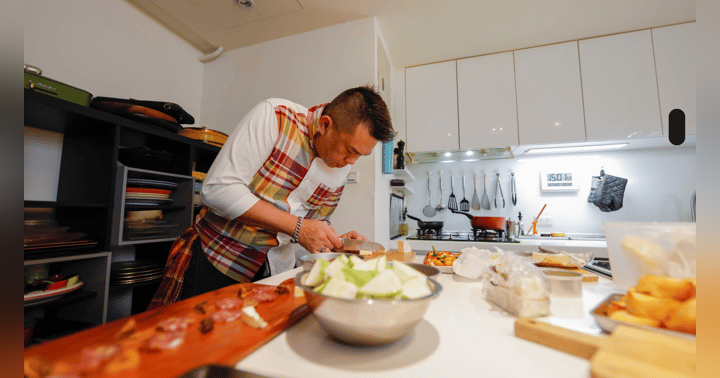Sustainable Hospitality: Strategies to Reduce Waste and Conserve Resources

Environmental sustainability has moved to the forefront of hospitality in the UK. With an eco-conscious public, hospitality businesses face increasing pressure to reduce waste, conserve resources, and minimise environmental impact. Recent data shows that 78% of UK consumers prefer brands actively committed to sustainability, and the hospitality sector has an opportunity to lead by example.
Andrea Zick, a sustainability champion at London’s Oxo Tower, offered insights into what sustainable practices mean in practice, saying, “Sustainability isn’t just about reducing waste – it’s about creating a harmonious relationship between people, planet, and profit.” Zick has been integral to initiatives that earned Oxo Tower Restaurant awards for sustainability, showing how these values translate into action and accolades.
Below, we explore five strategies inspired by industry best practices, including insights from Talking Hospitality’s conversation with Zick, to help your business adopt a sustainable approach that appeals to today’s eco-aware guests.
1. Conduct a Sustainability Audit
Begin with a clear picture of your current practices. An internal audit helps identify areas for improvement, from waste management to energy consumption. This aligns with Zick’s approach, who described her initial steps at Oxo Tower as understanding where and how the most significant environmental impacts occurred. By tracking everything from ingredient sources to water use, businesses can target specific areas for reduction.
To start your audit, tools like the Carbon Trust’s Energy Efficiency Calculator can offer tailored insights for hospitality. Once data is gathered, share findings with your team to foster a collective commitment to sustainability.
2. Reduce Food Waste with Smart Purchasing and Planning
Food waste is a significant issue in hospitality. A report from WRAP estimates that UK restaurants waste £682 million worth of food every year. Implementing waste reduction practices is a powerful way to improve sustainability and lower costs. Andrea Zick’s Oxo Tower Restaurant began by measuring waste, identifying areas of excess, and training staff in waste-conscious practices.
Consider adopting a “root-to-stem” cooking approach, using ingredients entirely. Invest in inventory tracking software like MarketMan to help with stock control, ensuring that high-turnover ingredients are prioritised. Training staff to manage portions and optimise storage can also cut down on waste considerably.
3. Embrace Energy-Efficient Equipment and Renewable Energy Sources
Energy expenses make up a significant portion of operational costs in hospitality. Switching to energy-efficient equipment not only reduces costs but also aligns with eco-friendly practices. According to the British Hospitality Association, adopting energy-efficient appliances can reduce energy usage by up to 20%. In Talking Hospitality’s recent episode, Zick mentioned that Oxo Tower started small, replacing high-energy-use appliances and upgrading to LED lighting.
Consider joining programs like the Energy Savings Opportunity Scheme (ESOS) to get guidance on sustainable energy investments. Further, renewable energy contracts are increasingly available, allowing you to power your business with wind or solar energy, minimising your carbon footprint.
4. Source Sustainable, Local Ingredients
Sourcing local and seasonal ingredients not only reduces the carbon footprint associated with food transport but also supports local producers, reinforcing your brand’s commitment to sustainability. According to UKHospitality, 68% of consumers are more likely to dine at establishments sourcing local products. Oxo Tower’s menu, as described by Zick, emphasises locally-sourced ingredients, aligning with the values of today’s conscious consumers.
Look for certified suppliers or join initiatives like the Sustainable Restaurant Association, which connects businesses with local farms and sustainable sources. Using seasonal produce can also lower costs and provide fresher menu options, aligning with consumer demand for transparency and quality.
5. Involve Your Team and Guests in Sustainability Efforts
Successful sustainability initiatives require buy-in from everyone in the business. Zick noted that sustainability efforts at Oxo Tower extended across departments, involving the front of house, kitchen, and even reservations in waste reduction and sustainable practices. Engage your team in sustainability goals through regular training and workshops, ensuring they understand both the why and the how of sustainable practices.
Additionally, engage guests in your sustainability journey. Offer incentives, like discounts for guests who bring reusable containers, or feature eco-friendly choices on the menu. Prominently display your commitment to sustainability online and in your establishment to foster a stronger connection with customers who value green practices.
Sustainable Hospitality is the Future
In a world where sustainability is no longer optional, UK hospitality businesses are in a unique position to lead by example. As Andrea Zick highlighted, sustainability isn’t just about reducing your environmental impact; it’s about enhancing brand value and building a loyal customer base that appreciates the steps you’re taking.
To stay updated on sustainability practices and explore more strategies to reduce waste and conserve energy, visit Talking Hospitality’s blog. Sustainability is a journey – and by starting today, you’re not only contributing to a healthier planet but creating a stronger, more resilient business.




